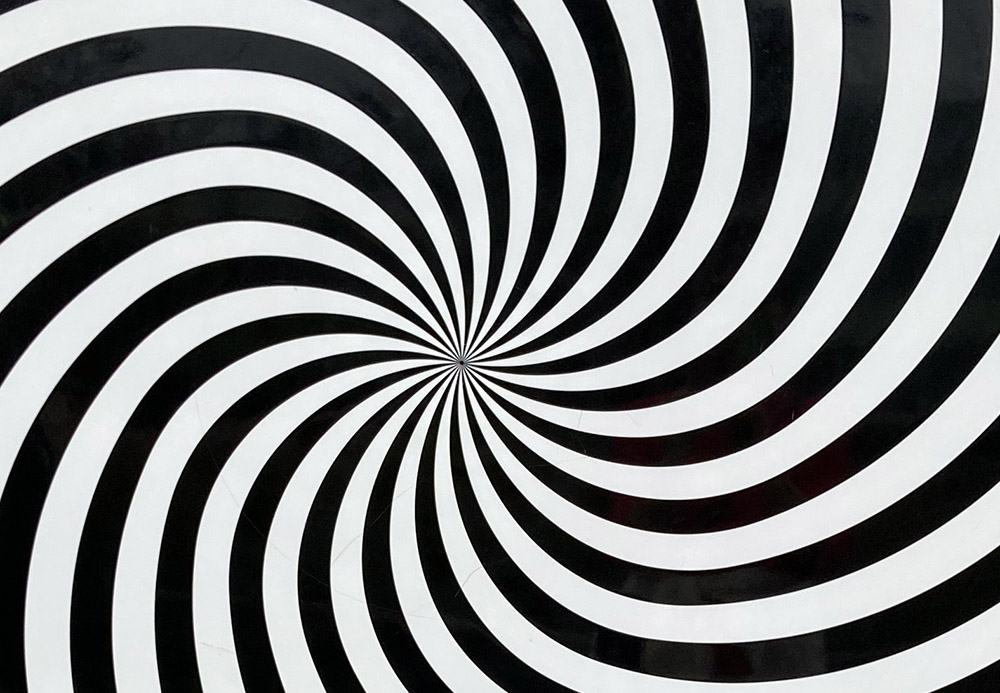
The spinning wheel on Little Island in New York City: As it spun, the many individual swirls went round and round, increasing in speed, creating a sense of dizziness within me. (Nancy Sylvester)
Recently, I was walking on Little Island in New York City, a former pier on the Hudson River now transformed into a public space integrating nature and art.
One of the art pieces there stopped me. It wasn't something new. It was a pinwheel — and as it spun, the many individual swirls went round and round, increasing in speed, creating a sense of dizziness within me.
I paused and stood there for a bit, reflecting on how there are so many things swirling faster and faster in our lives and in our world.
- COVID-19 and its variants;
- Mortgage foreclosures;
- Family and friends sick, and some dying;
- Black Lives Matter movement;
- White supremacy groups;
- Proposed $3 trillion U.S. investment for infrastructure;
- Political opposition to increasing taxes on the wealthy to pay for investments in our infrastructure;
- Fake news;
- Immigrants at the border;
- Taliban returning to power in Afghanistan;
- Children beginning schools confused and scared in light of no coherent masking policies;
- Friends aging and experiencing significant changes in their physical abilities;
- Multiple perspectives on almost every issue — including what is truth;
- Devastating floods, fires, extreme heat;
- Friends suffering memory loss;
- Climate change intensifying and closer to the point of irreversibility;
- Deeper fissures between political and religious factions in our country and world.
Faster and faster, we are asked to live with, live into, make sense of, accept what we must, and change what we can.
As I stood there, I became mesmerized by the center and heard a line from a T.S. Eliot poem: At the still point of the turning world.
I stood there and pondered how can one be the still point in such a world?
The response rose in me — through contemplation, when your true self aligns with the magnetic center of Divine Love within. Held there in love, you are totally immersed in all that is, and yet nothing pulls you off that center.
Paradoxical as it is, in entering the spacious silence to which contemplative practice invites you, you awaken to all that is going on in life, without grasping, clinging, or internalizing. You open to the workings of God, Divine Mystery, within you.
Advertisement
It isn't that you become immune or indifferent to suffering or injustice or joy and happiness. Rather, at that still point you perceive reality in a new way. Your consciousness moves beyond the either/or, win/lose, subject/object way of knowing into a greater sense of the whole, an interconnectedness, within which there is differentiation. Full of paradox, everything is part of being human.
Being at that still point can call forth new and imaginative responses to what is happening in our lives. And its embrace allows us to breathe, to let go, to rest in unconditional love. That is what I felt I needed as I stood watching the spinning, and feeling all that is swirling in our world and in my life, making me dizzy and off balance.
Contemplative practice is just that — a practice. It takes time for most of us to drop down into the spacious silence that invites us to that awakening of who we truly are and where we are aligned with Divine Love.
I often use the image that it is the place where the divine and human dance together. Imagine how pleased I was when I re-read Eliot's full poem from the "Four Quartets."
At the still point of the turning world. Neither flesh nor fleshless;
Neither from nor towards; at the still point, there the dance is,
But neither arrest nor movement. And do not call it fixity,
Where past and future are gathered. Neither movement from nor towards,
Neither ascent nor decline. Except for the point, the still point,
There would be no dance, and there is only the dance.








